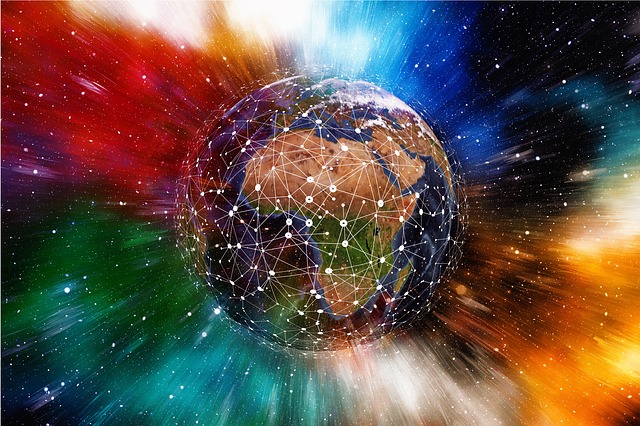Mercosur (Southern Common Market) is a regional trade bloc in South America formed to promote economic integration among its member countries. Its impact varies across different global regions—such as the USA, Europe, and Asia—due to differences in trade dynamics, geopolitical concerns, and economic interests.
Mercosur was born on November 30, 1985. The name was created on March 26, 1991 and the date of entry into force is December 15, 1995 with the signing of the Treaty of Asunción by Brazil, Argentina, Paraguay, Uruguay and more recently Venezuela, in 2012
Mercosur Member Countries:
- Argentina
- Brazil
- Paraguay (suspended since 2012, but still a member)
- Uruguay
- Venezuela (suspended since 2016)
- Bolivia (joined as a full member in 2020)
Mercosur's Impact:
1. United States:
Pros:
- Trade Partnerships: The U.S. has strong trade relationships with individual Mercosur countries, particularly Brazil and Argentina. Mercosur's growth could open up new markets for U.S. agricultural, industrial, and technology exports.
- Regional Stability: A more integrated and stable South America can enhance regional stability, potentially leading to less migration pressure and more predictable economic conditions.
Cons:
- Competitive Trade: Mercosur's push to create a regional free trade area could make U.S. exports to South America less competitive. If Mercosur countries offer favorable trade terms to China or the EU, the U.S. might face higher tariffs or restrictions.
- China Influence: With China increasingly involved in Latin American trade, Mercosur's ties to China might reduce the U.S.'s influence in the region.
2. European Union:
Pros:
- Trade Expansion: Mercosur is an important trading partner for the EU, with deals like the EU-Mercosur Free Trade Agreement (signed in 2019 but pending ratification). This agreement promises to reduce tariffs and increase market access for European companies, particularly in agriculture, machinery, and automotive sectors.
- Geopolitical Leverage: A closer economic relationship with Mercosur countries enhances the EU's strategic influence in Latin America, positioning it as a key player against U.S. and Chinese dominance.
Cons:
- Agricultural Competition: European farmers, particularly in France, have voiced concerns that increased competition from South American agriculture (such as beef and soybeans) could undermine local farming industries. Environmental concerns about deforestation in the Amazon also complicate relations.
- Environmental Standards: The EU is very sensitive to issues like climate change and deforestation, and some Mercosur policies on agriculture and land use are seen as unsustainable, especially concerning the Amazon rainforest.
3. Asia:
Pros:
- Market Access: Mercosur’s trade agreements provide Asian countries, such as China, Japan, and South Korea, with better access to a large market of 270 million people across Latin America. Mercosur’s agricultural and natural resources (soy, beef, and minerals) are key exports to Asia.
- Diversification of Supply Chains: Asian companies can benefit from Mercosur’s natural resource wealth (e.g., oil, minerals, and soy) and its manufacturing potential in countries like Brazil and Argentina, diversifying their supply chains.
Cons:
- Competition for Resources: Asia, particularly China, has established strong bilateral trade relations with many Mercosur countries, especially for commodities like soy, iron ore, and oil. As Mercosur countries continue deepening ties with the EU and others, Asia could face more competition for these resources.
- Geopolitical Balance: Mercosur's growing relationship with both China and the EU may complicate trade and diplomatic negotiations with Asia, especially in terms of access to South American markets and political alignment.
Summary of Mercosur’s Impact on Key Regions:
| Region | Pros | Cons |
|---|---|---|
| USA | - Trade growth with Mercosur countries - Stable region | - Potential loss of market access - Chinese influence |
| Europe | - Market access for EU goods - Political leverage | - Agricultural competition - Environmental concerns (deforestation) |
| Asia | - Enhanced market access for exports - Diversified supply chains | - Resource competition - Geopolitical alignment concerns |
Key Takeaways:
- For the U.S.: Mercosur presents opportunities for trade, but its increasing ties with China and other regions could challenge American interests.
- For Europe: Mercosur is a significant trading partner, offering both opportunities (e.g., market access) and challenges (e.g., agricultural competition and environmental concerns).
- For Asia: Mercosur provides access to vital resources, but geopolitical complexities and competition for commodities could impact Asia's interests.
In all cases, Mercosur is shaping up to be an increasingly important player in global trade, offering both opportunities and challenges depending on regional perspectives.




